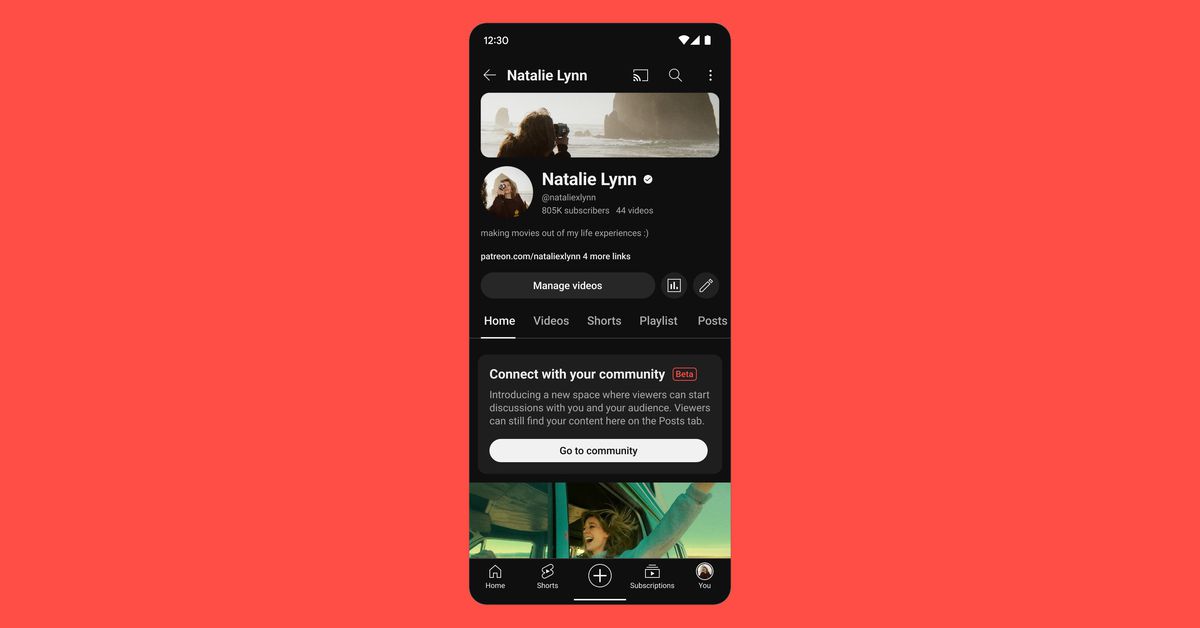/cdn.vox-cdn.com/uploads/chorus_asset/file/25626819/Communities_Still_Image.jpg)
Many creators post videos on YouTube but take to other platforms to actually interact with their fans and viewers. With a new feature called Communities, YouTube is hoping to offer those types of interactive options right on the platform, so creators might not need to take to Discord, WhatsApp, or maybe Instagram or Reddit anymore.
The Communities feature, which YouTube launched today at the Made on YouTube event in New York City, is sort of a mix of old-school forum, subreddit, and Facebook group. Once a creator turns on their community, anyone who joins can post, and people can reply to each other. The idea is presumably that you’ll all talk about things related to the creator whose community you’re in, but if you’ve ever been in a YouTube comments section, you know that’s not how it’ll work. There’s also a special section for the creator’s own posts, where they can share text, images, and other stuff.
YouTube has been working on various features like this for a long time. There’s even a feature called Community already live on the platform, though that has really just been a way for creators to post non-video content, and most creators don’t seem to use it much. As YouTube has looked for ways to make viewers feel closer to their favorite creators and be part of their creative process, the new Community system is clearly designed to be much more interactive.
All of that new interaction could be overwhelming to some creators, so YouTube is also rolling out a new tool called Community Hub, which replaces the comments section of the YouTube Studio app and gives creators a combined view of all the activity on their channel. YouTube’s AI systems will help surface good comments and even offer reply suggestions so creators can get back to as many people as possible.
Even with those new tools, Communities will present plenty of complicated moderation issues, especially now that fans can post their own content in the channel instead of just leaving comments. That may be why YouTube is allowing each creator to turn it on for themselves and is taking the rollout slow; Communities are live on a few channels now, the company says, but won’t be available widely until next year.
YouTube may be a video platform, but the company has always seen itself as a social product, too. And it knows well that the most important way to make a platform stick is to give people a way to hang out with each other. So even as it comes up with new ways for creators to make and monetize videos, it’s also investing heavily in hanging out.
Services Marketplace – Listings, Bookings & Reviews
